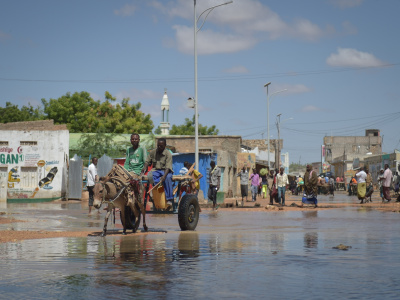
Scaling up African clean energy
Alfonso Medinilla and Katja Sergejeff look at opportunities for scaling renewable energy deployment in African countries in the 2020s and 2030s – not just as a development or energy access problem, but as a clear and timely opportunity for African economies to benefit from the global green transition.
Summary
This paper looks at possibilities for scaling up renewable energy deployment in African countries in the 2020s and 2030s – not just as a way to increase energy access, but as a clear and timely opportunity for African economies to benefit from the global green transition. It illustrates how certain drivers enable some countries to move faster than others and argues that a ‘just energy transition’ needs to start from African countries’ own economic development agendas, assets and priorities.
While overall renewable energy deployment in Africa is slower than in most parts of the world, several African economies are catching up. They seek to leverage their renewable energy potential and believe that clean energy is a trigger for their socioeconomic and industrial development. At the same time, Africa as a whole accounts for just a fraction of worldwide investment in renewable energy. The costs of a delayed African renewable energy shift will increase over time, creating new fossil fuel lock-ins and missed opportunities.
Unlocking the renewable energy potential across the continent requires major coordinated changes across the infrastructure, finance and policy domains. International climate diplomacy and renewable energy finance need to address context-specific constraints, including existing and emerging fossil fuel dependencies and create long-term perspectives for sustainable economic development and industrialisation.





